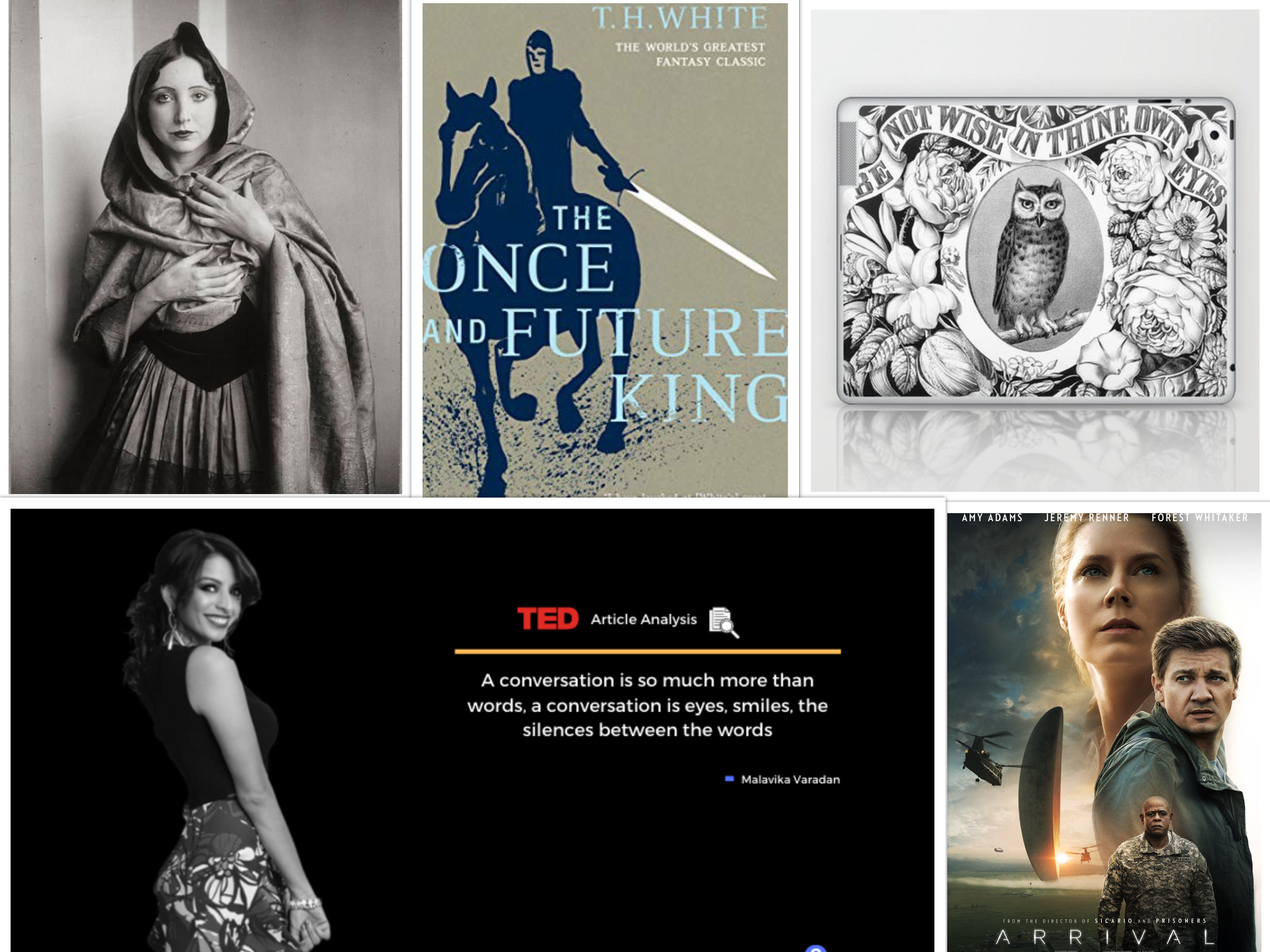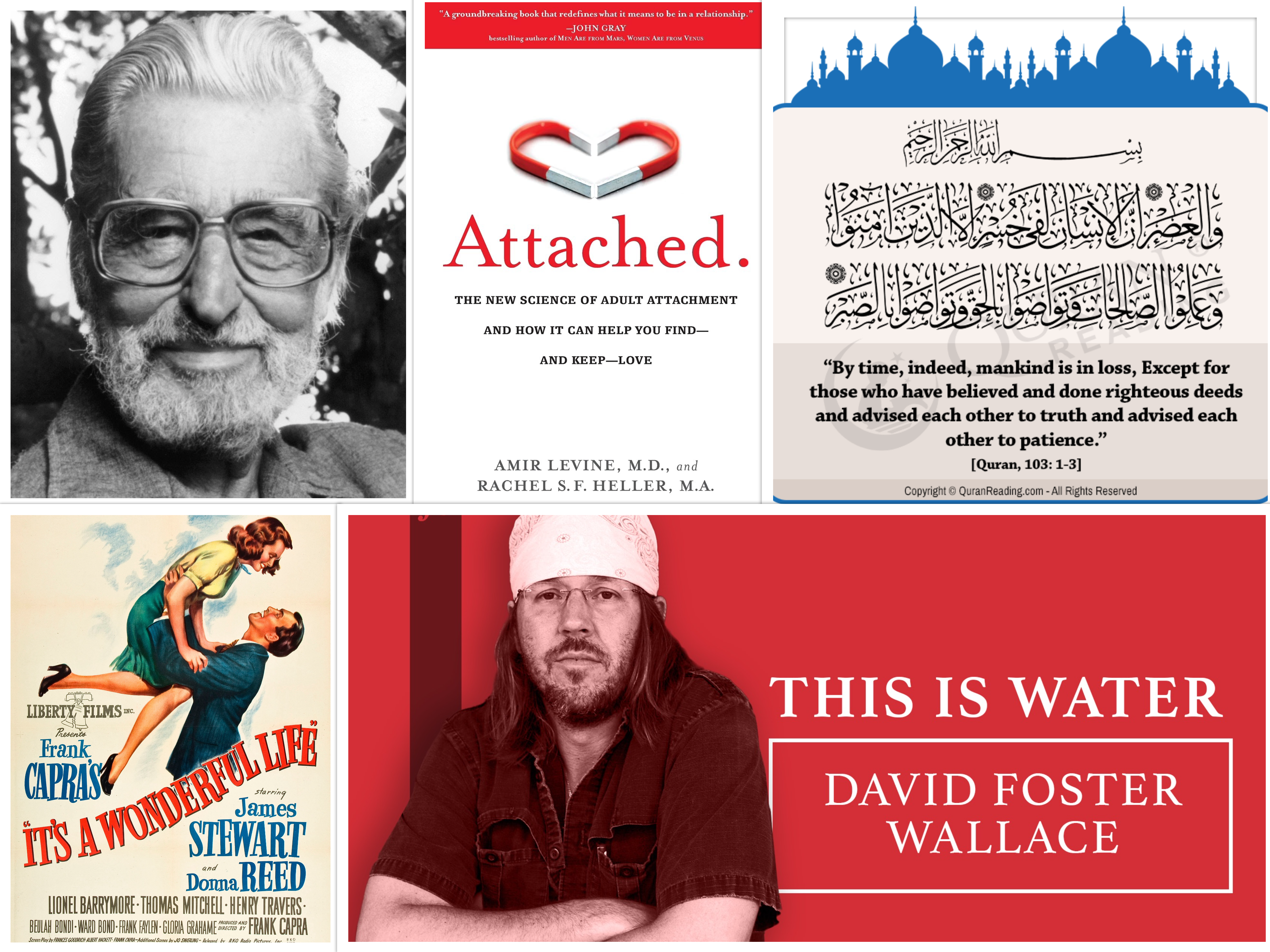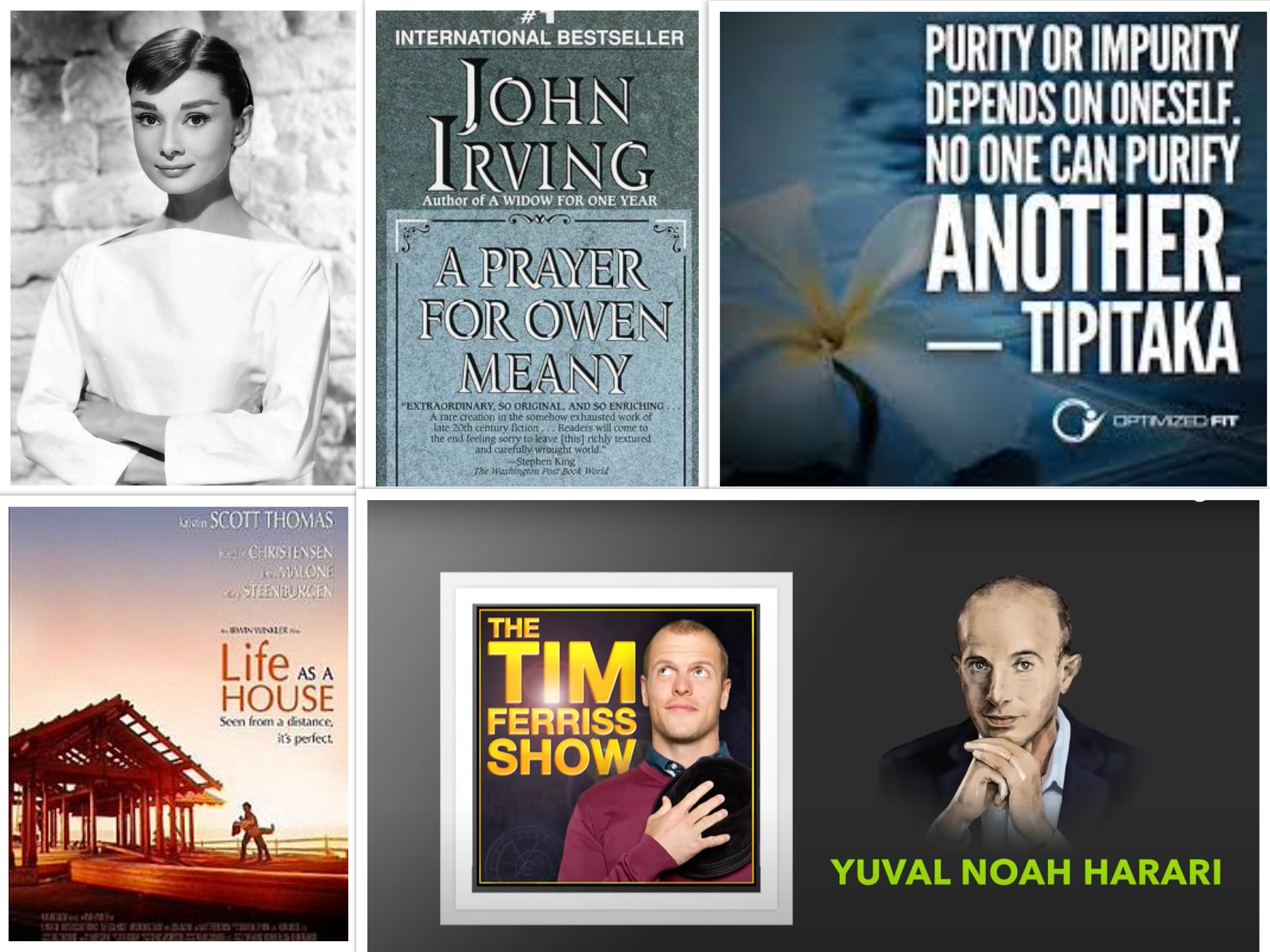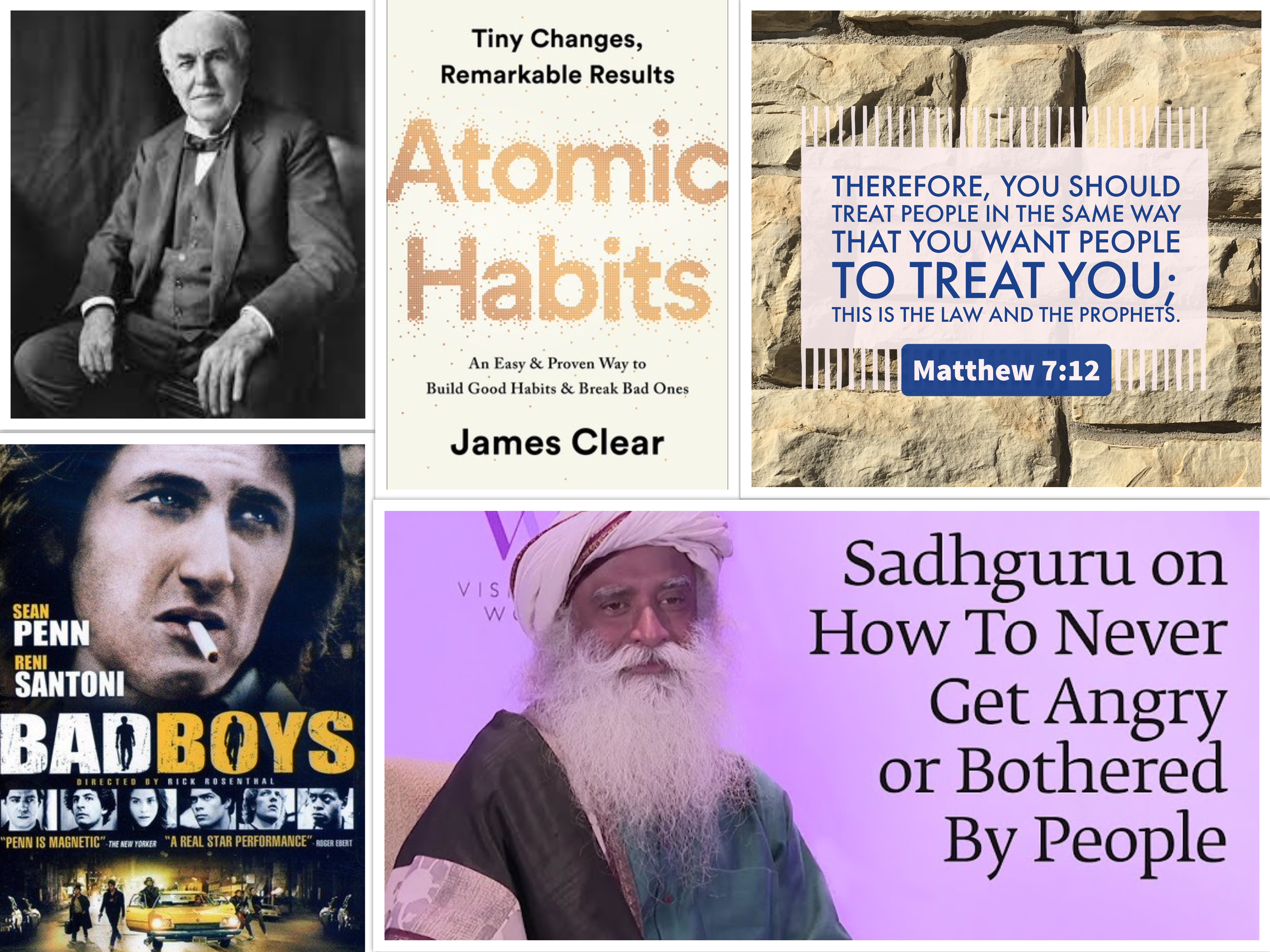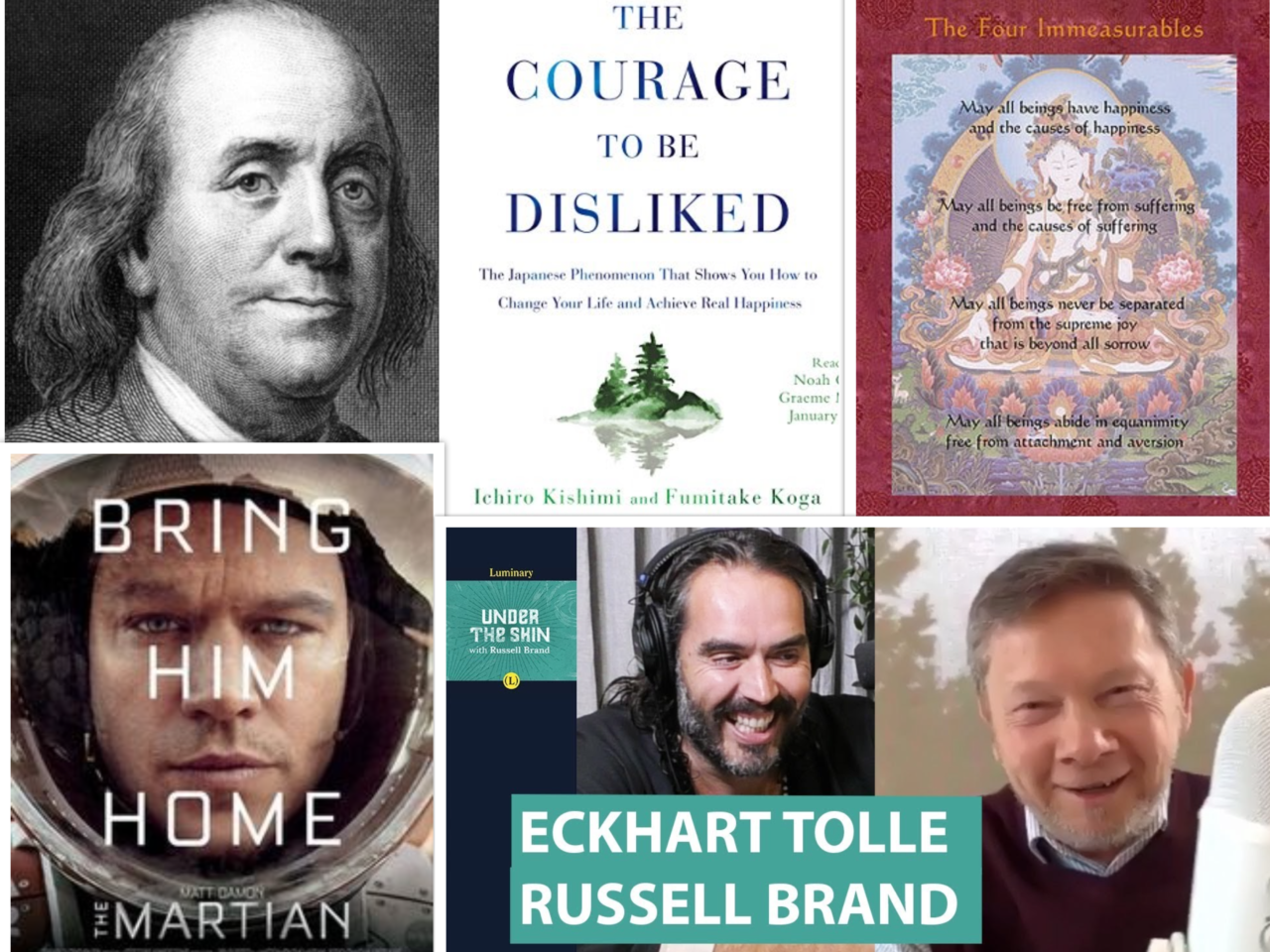Sunday Supplement #11 (July 25th, 2021)
Below is another Sunday Supplement with a quote worth sharing, a book worth reading, a movie worth watching, brainfood worth consuming, and a spiritual passage worth pondering.
I hope you take something away from this post that enriches your week ahead!
Quote of the Week:
“And the day came when the risk to remain in a tight bud was more painful than the risk it took to blossom.”
– Anaïs Nin, from her poem “Risk”
Book of the Week:
The Once and Future King – T.H. White
T.H. White’s The Once and Future King is based largely on Sir Thomas Malory’s Le Morte d’Arthur. It recounts many classic elements of Arthurian Legend in easy-to-digest prose, unlike some denser books in the same field.
The book is separated into four parts and starts with a light-hearted telling of The Sword in the Stone but ends with a more sobering look at Arthur experiencing the downfall of his kingdom at the hands of his son Mordred.
I highly recommend this book to anyone interested in the stories of King Arthur. It is a long novel, but since it’s broken into four parts, you can take it in sections and go at your own pace. The stories are wonderfully written and provide vivid descriptions with entertainment and depth. The themes and lessons in the book are rooted in the many fantastical adventures and intense challenges the characters encounter.
The multiple points of view and different storylines from various characters add to the complexity of the narrative. Many of the stories from the book address issues that are still relevant today. It is a complete work in many different ways and is one that gives the reader a pleasurable and thought-provoking read.
Movie of the Week:
Twelve alien spaceships appear around the world, but the reason for their arrival is unknown. A linguist, played by Amy Adams, works with the American military to make initial contact with the lifeforms from one of the ships.
Arrival was nominated for eight Academy Awards and won one— Best Achievement in Sound Editing. The year it was up for the Oscars (2017) had many brilliant films, but this one should not be lost in the mix. It is one of the best Cinematic viewings I’ve had to date. The execution of the screenplay on screen provides a beautiful experience.
The film is based on a short story by Ted Chiang. Chiang won four Nebula awards, four Hugo awards, and four Locus awards for his works. If you enjoy the movie, you should check out his short story collections.
It’s not often that a movie surpasses the bar of entertainment and reaches the heights of unique art. Arrival’s themes fit in too well with modern times but give hope to viewers by the end. Communication is one of the themes at the forefront of the narrative, but how it is explored makes the climax of the film profound.
Every element of the movie is executed to the highest degree. The beauty of the story is brought to life through everyone involved in its making. Even if science fiction is not your genre, this film should be on your list.
Brainfood of the Week:
TEDx Talks with Malavika Varadan on Communication
Malavika Varadan is a radio host, musician, and fitness enthusiast. She cultivated a large fan following on her radio show, reaching over 1.6 million people, and has learned many tips on how to engage in conversation in the process. In this episode on TEDx, Varadan goes over different strategies to support effective communication.
Varadan starts with a description of how conversations are like links in a chain. Each conversation we have with someone adds another link. The strength and power of the chain depend on the conversation, and we can create solid or weak bonds depending on how we communicate with others.
The seven tips Varadan provides are valuable tools to help start a conversation with anyone, establish a connection, and ultimately have a new experience.
A lot of polarities occur between people as a result of miscommunication or not communicating at all. Our words can be misinterpreted, or we might not even be able to connect in a conversation. Varadan’s TEDx Talk addresses these issues and helps give solutions for effectively engaging with others.
Closing Spiritual Passage:
“Be not wise in thine own eyes.”
– Proverbs 3:7 (Tanakh)
This passage from the Hebrew Bible/Old Testament is one of my favorite reminders to keep growing and learning. The early books of the Bible can be drastic, but there are a lot of nuggets of wisdom in its pages.
I like how this quote discusses wisdom and how it shouldn’t be viewed as a personal attribute. It is an example of the continual pursuit of knowledge. I’ve been working on being curious rather than judgmental. The reason for this is because judgment comes from a place of believing you are right. In many cases, we only see the surface of a person or situation and think we know the whole. Curiosity offers a way to learn instead.
I want to continue learning for the rest of my life. I want to continue to be curious when I encounter different people and ideas. Passages like this one are excellent reminders of how to be forever open to growth.
Learn something new, and have a blessed week ahead!
1 Comment